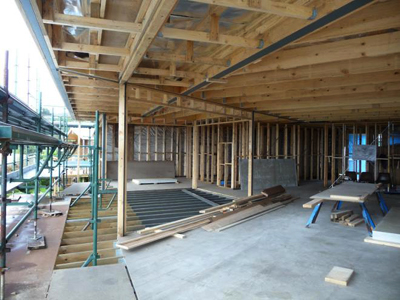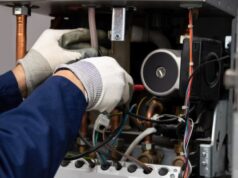
Builders warranty insurance goes under a few different names, depending on which state you’re in – and technically, it’s designed to help protect you from trouble during your build.

Different states have very different rules (and names) when it comes to builders warranty insurance.
Builders warranty insurance goes under a few different names, depending on which state you’re in (see the table at the bottom of the article for official names and specifics in different states and territories).
Builders warranty insurance is a type of insurance which, in theory, is supposed to provide cover to protect you as the homeowner under circumstances where you’re having trouble with work that’s been done (or not done, if that’s the case) by your builder.
It’s usually required when you’re building a house, and may be required for renovations too, depending on what state you live in and the value of the renovation works you’re having done (see table below).
What is builders warranty insurance supposed to cover you for?
Builders warranty insurance is designed to provide cover for you against incomplete or defective workmanship in the event that the builder:
- dies
- disappears
- becomes insolvent / bankrupt or
- is deregistered.
Different models in different states and territories
Builders warranty schemes differ significantly between different states and territories, and have been the subject of a lot of passionate debate, criticism and (in some states) significant change in recent years.
Many argue that in some states, compensation from builders warranty insurance is practically unattainable.
Consumer protections are (arguably) strongest in Queensland, where the government underwrites the warranty risk, and everything from licensing, to dispute management and home warranty insurance is managed by the Building Services Authority (the BSA).
NSW and Victoria have slightly different arrangements, where home warranty insurance is managed by state-directed home insurance funds. In Victoria, it’s the Victorian Managed Insurance Authority (VMIA) and in NSW it’s the NSW Home Warranty Insurance Fund.
Is building warranty insurance mandatory?
Builders warranty insurance is mandatory in all states except for Tasmania, where it’s no longer required by law after the government deemed that it did not provide value for money and consumers were only protected if their builder died, disappeared or became insolvent.
When does builders warranty insurance apply?
Where it’s required, builders warranty insurance must be in place before construction starts – and provides insurance cover both through the course of the build, and for a period of several years thereafter.
It’s up to the builder to demonstrate that they’ve arranged this insurance – and in most cases it’s necessary for them to have sorted their insurance before they take any payment – including deposits – for work. Check with your local authority for further details about your own and your builder’s obligations.
The cover once the build is completed (or once the contract period ends, if that’s the case) is normally split into two separate parts:
- a shorter period of cover for non-structural defects (usually two years)
- a longer period of cover for structural defects (usually six years)
The exact length of the cover provided will depend on which state you’re building in.
Builders warranty insurance by state / territory
| State | Name of scheme | Minimum value of project before insurance is required | Cover for structural defects (after practical completion) | Cover for non-structural defects (after practical completion) |
Covered to a value of (subject to conditions) |
| ACT | Home warranty insurance | $20,000 | 6 years | 2 years | $85,000 |
| NSW | Home warranty insurance | $20,000 | 6 years | 2 years | $340,000 |
| NT | Residential building insurance | $12,000 | 6 years | 1 year | $200,000 |
| QLD | Home warranty insurance | $3300 | 7 months | 7 months | $200,000 |
| SA | Building indemnity insurance | $12,000 | 5 years | 5 years | $80,000 |
| Correct as of October 2013. This table is meant as a guide, please check with your local building authority for up-to-date information | |||||





